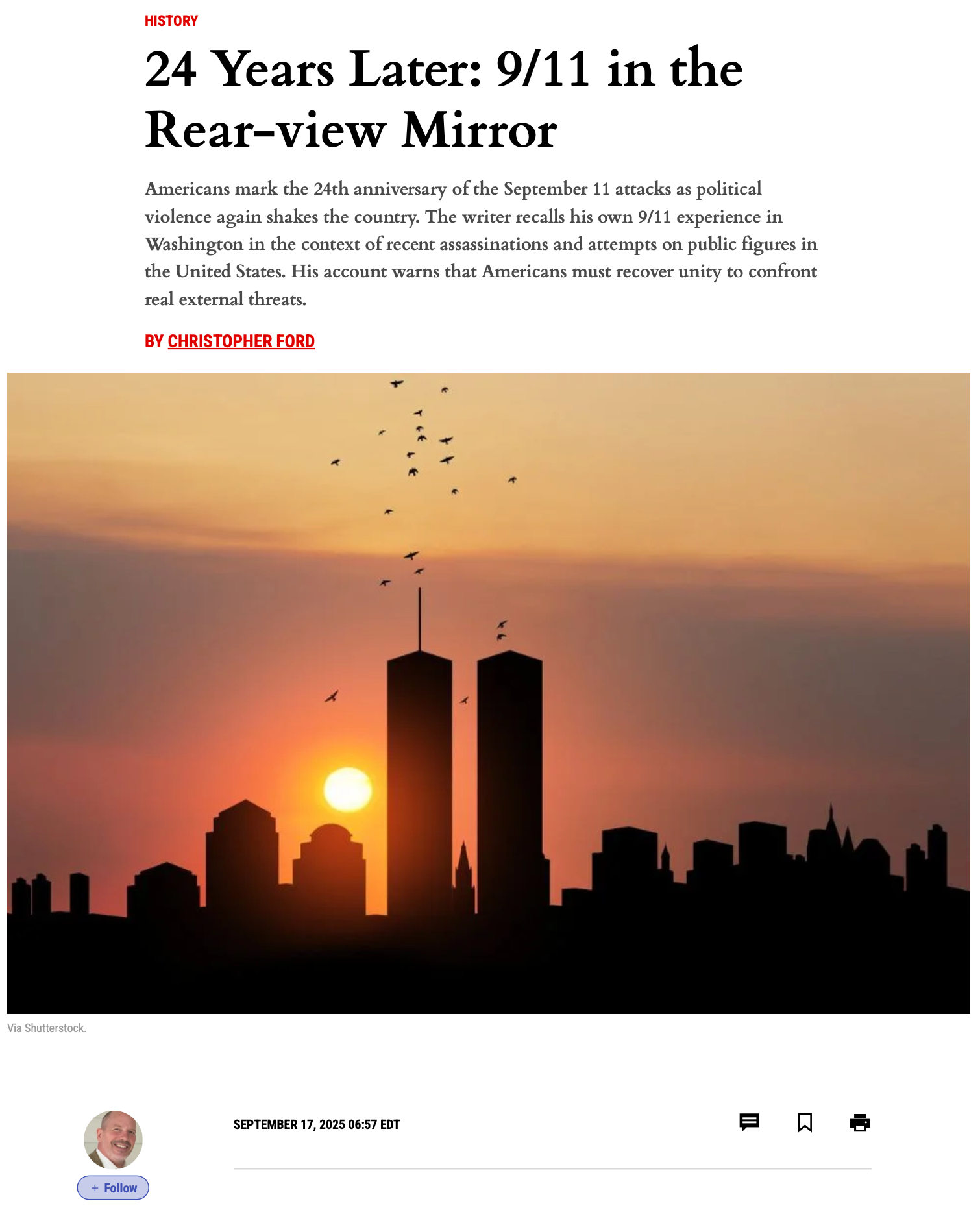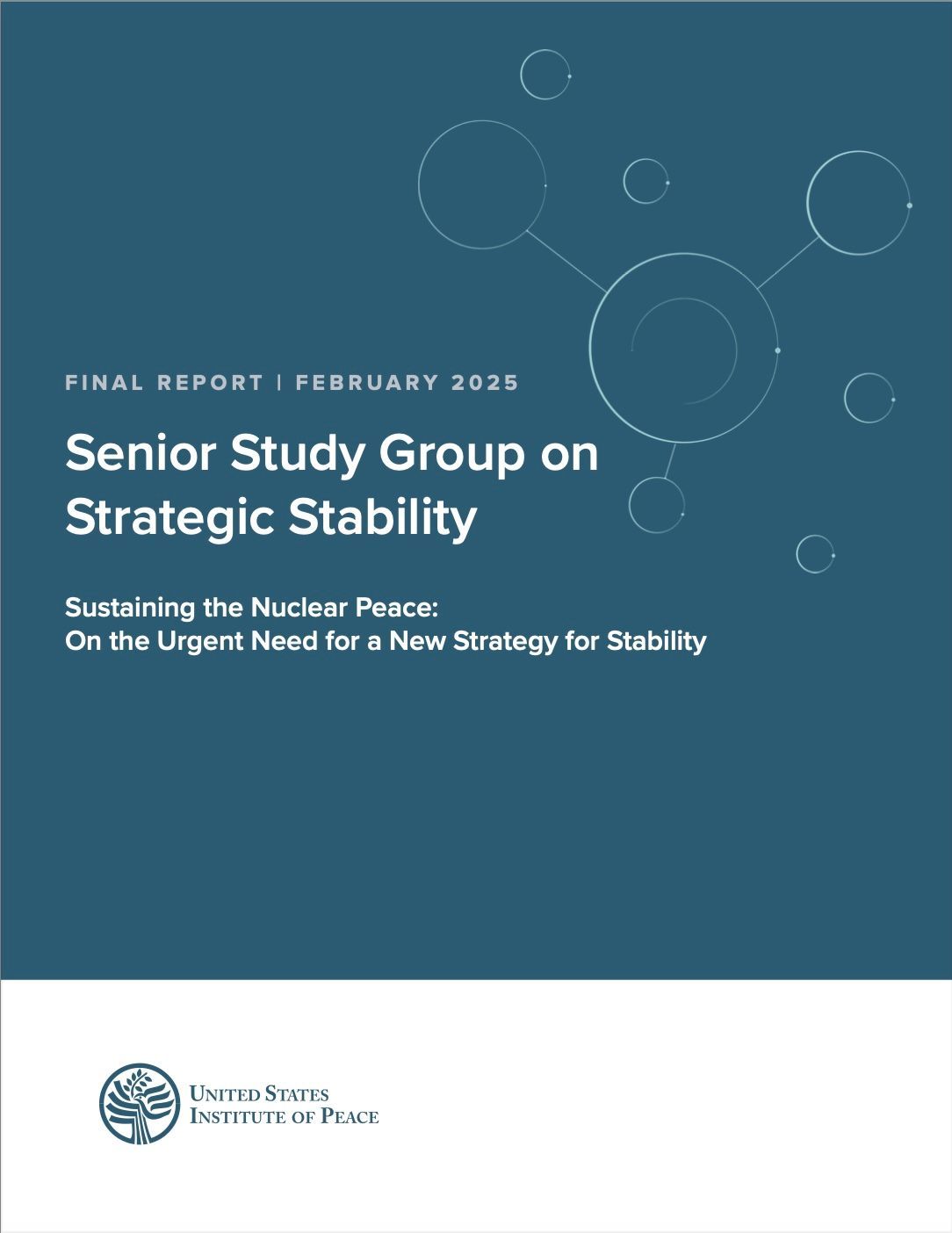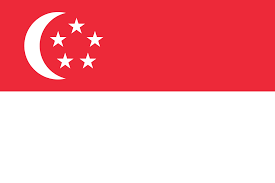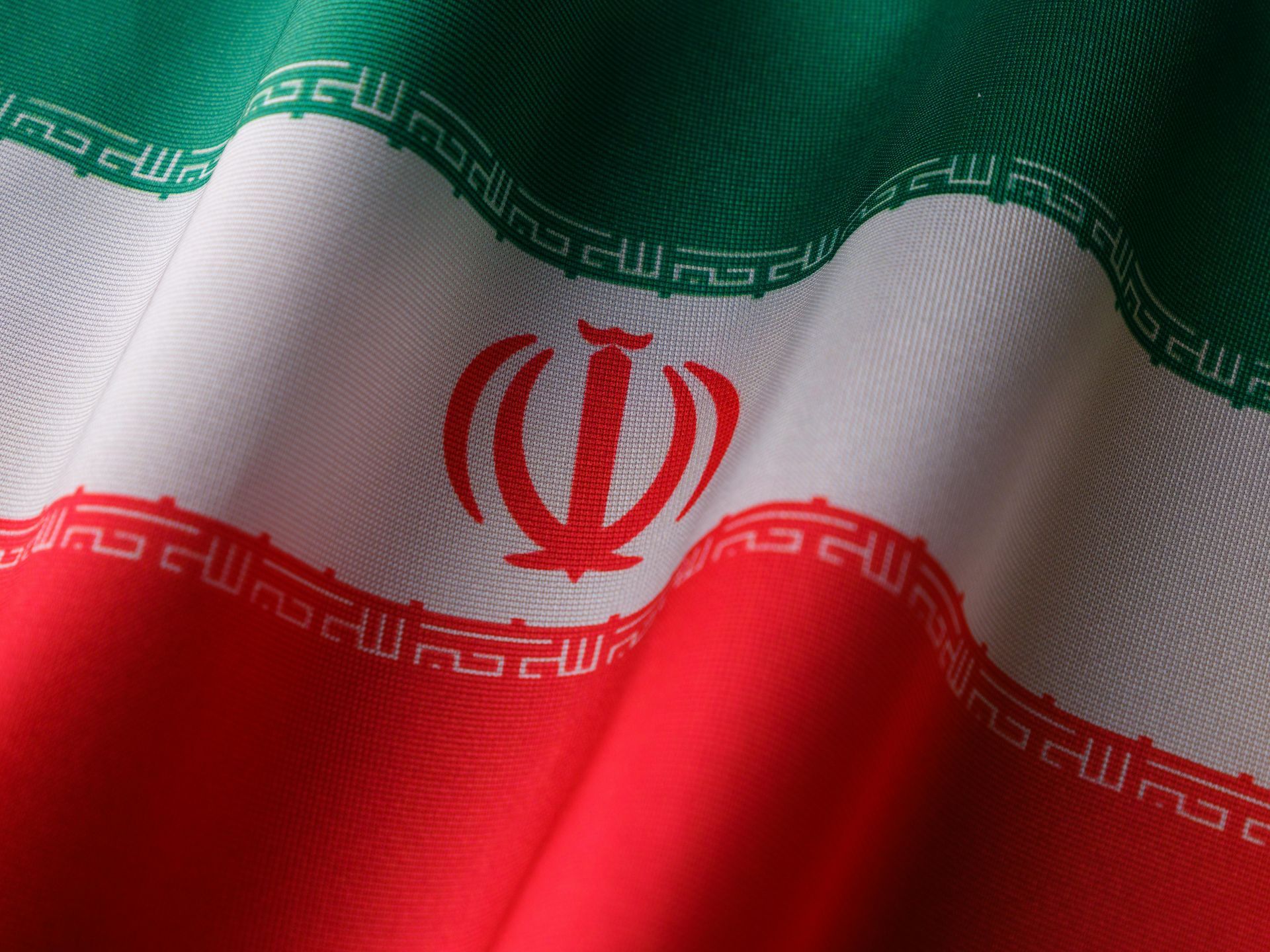Puncturing Beijing’s Propaganda Bubble: Seven Themes
In a private discussion with some thoughtful people the other day, I was asked some good questions about what lessons I would draw from the work I did in connection with my latest book on China – China Looks at the West (2015) – for anyone concerned with how best to use U.S. public diplomacy and media outreach to push back against the increasingly aggressive and sophisticated propaganda efforts of the People’s Republic of China (PRC).
The questions got me thinking. Since it is very clear that the PRC does regard itself as being in a global ideological war against the West and Western political values, how indeed might we usefully push back? In a world in which Beijing advances its message not just at home through a ubiquitous and heavy-handed information-control bureaucracy, but also overseas – through well-crafted propaganda publications and websites such as the English-language China Daily , in the more subtle insinuations promulgated through “ Confucius Institutes ,” through semi-clandestine broadcast networks in the United States and elsewhere such as those managed by China Radio International (CRI), and through the use of economic pressures to browbeat our entertainment industry into more flattering depictions of the Chinese Communist Party regime – how might we return the informational favor?
I. Ambition but Caution
Well, I’d urge that we start by identifying why we need to return that favor, since it matters. In China Looks at the West , I talk extensively about what I label the “Great Telos of Return” (or GTR) – that is, the deep undercurrent of thinking in Chinese elite circles over many years that is fixated upon the idea of China’s national “return” to a position of geopolitical centrality which it felt itself to possess in Imperial times, but of which it was humiliatingly robbed in the 19th Century. In various ways, the imperative of returning China to a position at the center of the international community runs through modern Chinese politics like a central nerve; I believe it forms a cornerstone of the current regime’s strategic ambition and domestic political legitimacy narrative.
Significantly, this telos is one that demands for China an international future sharply, and structurally, incompatible with the United States’ own present power, position, and role in the international community. As I put it in a recent speech , “they are obsessed by the imperative of national ‘return,’ and we are in their way.” Fixation upon the GTR nourishes zero-sum status-hierarchical ambitions and pushes China into postures that are inherently hostile to U.S. strategic and long-term policy interests.
That’s the depressing news about the future of Sino-American relations, at least for so long as the current Chinese Communist Party (CCP) regime remains in power. But there is also, I would argue, room for hope. At least since the death of Mao Zedong, the CCP has often displayed considerable strategic caution in how it operationalizes its “Chinese Dream” – to use President Xi Jinping’s favored phrase – of national rejuvenation and geopolitical return.
Deng Xiaoping, for instance, was famous for his formulation about the need to “bide our time and hide our capabilities.” This was a maxim of strategic caution, which recognized that China was still too weak, and the West too strong, for Beijing yet to reclaim its Imperial birthright as the center of the international political system – and that China still needed a permissive and congenial international environment in order to permit the export-led growth it required in order to become strong enough for whatever more confrontational postures would eventually become necessary. The assumption underlying this maxim was structural hostility and zero-sum competition, and its ambition ran to replacement of the United States as the center of the world system, but its tactics were prudential and nonconfrontational: for the sake of its ultimate goals, it was willing to act with restraint and patience over a potentially long period of time.
II. The Inflection Point
Much of China Looks at the West tells the story of how this Chinese ethic of strategic caution came under pressure over time as China became more powerful and economically and technologically sophisticated, however, and as the CCP regime turned to the cultivation of jingoistic nationalism to buttress its tattered legitimacy after the Tiananmen Square massacre of 1989. Ultimately, I argue, the patience demanded by Dengist “time biding” became too much to ask of a regime that was increasingly impatient , and a Party which felt an acute need to deliver something like “return” after years of promising discontented Chinese citizens that CCP autocracy is the price the country has to pay if it wants to overcome its past “humiliations” and return to glory.
To my eye, the critical inflection point came in 2008-10, when the United States plunged into financial crisis, when a new U.S. administration came to power that was convinced that America was to blame for many of the world’s problems and which was committed to retrenchment and disengagement from international security affairs, and when Washington thereupon slipped into a period of political dysfunction, crippling deficits, domestic preoccupations, and budgetary gridlock. Previously, Dengist strategic caution had rested heavily upon four assumptions: (1) China was still too weak openly to oppose the United States; (2) the West remained strong enough to stymie Chinese assertiveness if provoked; (3) China still needed to learn much from the West about how to be a modern, economically advanced, and technologically sophisticated great power; and (4) China still needed a congenial international environment in which to grow, during which time trends in “comprehensive national power” would move in its direction.
Coming at a time when China was feeling more economically powerful and internationally empowered than at any point in living memory, Washington’s enervating triple crisis of finance, budgets, and strategic willpower undermined all four of these elements. It is thus no coincidence, I would argue, that this juncture marked the point at which the PRC stepped up its moves to redraw international boundaries in the South China and East China Seas, to ramp up ostentatious displays of military power-projection, to posture its currency vis-à-vis the dollar and more openly and aggressively seek the “replacement” of Western-originated international institutions, to pillage Western computer networks in search of technology and state secrets without the inconvenience of having to use actual economic interaction as a vehicle for intellectual property theft, to promote a supposed “China Model” of economic development under authoritarian control as a system for other countries, and to ramp up other ideological components of its offensive propaganda narrative.
None of these more aggressive elements of PRC policy were altogether new with the U.S. period of crisis, of course, but upon its arrival they were stepped up markedly. The conjuncture of growing strategic confidence and a sense of sudden opportunity apparently proved a heady mix for Party leaders in Beijing.
III. Turning it Around?
But why do I say there’s room for some optimism this grim story? Well, I don’t think that Dengist strategic caution is dead as much as I do that global and regional circumstances helped its opponents – those hotheaded members of the PRC elite that the Nobel Prize-winning imprisoned dissident Liu Xiaobo once termed modern “Boxers” – send such prudence into headlong retreat. To be sure, I doubt that we have much ability to influence China’s underlying obsession with “return,” and hence the long-term geopolitical hostility of the regime. I think it still remains within our power, however, to help create circumstances in which more cautious Dengist “time-biding” might be called back, as it were, out of retirement.
If it were perceived that a continuation of the PRC’s provocative self-assertiveness, regional bullying, and other sorts of revanchiste acting-out were likely to entail previously unanticipated costs and risks for China – and might even imperil the country’s ability to achieve its dream of “return” entirely – circumstances more conducive to a resurrection of Beijing’s former strategic caution might obtain once more. Our strategy, therefore, should present Beijing with the prospect that continuing on its recent course of provocative self-assertion will become increasingly costly, risky, and counterproductive.
And here’s where I get back to public diplomacy and media outreach, and to the importance of puncturing the propaganda narratives through which the CCP regime explains and justifies itself to itself, to its citizens, and to foreign audiences. Improving America’s ability to counterpunch in the face of Party-State’s propaganda war is only one piece in a much bigger strategic puzzle, of course, but it’s an important one. The arena of information and ideological conflict is also an aspect of the challenge that I think policymakers in Washington understand much less well than the more concretized problems of military force posture or integrative trade-promotion in the non-PRC portions of the Pacific Rim.
IV. Informational Pushback
So, for whatever they may be worth, I offer here some recommendations for how to take advantage of the PRC’s own asymmetric vulnerabilities in the information war its leadership seems to have declared against the United States and Western values. In effect, the approach I advocate revolves around building a Western counterstrategy upon the themes of Beijing’s own propaganda discourse.
We should study closely the propaganda narratives of the Chinese Party-State, for these stories can function as a kind of Rorschach Test in which PRC leaders identify for us the ideas that they most fear, as well as the things that the CCP regime needs to seem to be true in order for its rule, and the Party’s organizational model, to appear at all defensible and legitimate at home and abroad. Such insights, in short, can provide us with a sort of informational “targeting algorithm” – helping us identify how to play against these fears, and how to undermine the ideational requirements for Party legitimacy, as part of a pressure strategy against the regime. So here are seven suggestions:
- Discretit CCP “meritocracy.” One theme in the CCP’s modern legitimacy discourse is that of “meritocracy” – that is, Party officials and their propagandists want Chinese and foreign observers to believe that Chinese leaders are selected for their positions according to rigorous standards of technocratic, educational, and managerial merit.
This narrative, however, can rather easily be punctured by obtaining and publicizing information about the corruption and cronyism that is rampant within – and structurally essential to – the CCP bureaucracy, as well as about the endless abuses of power against ordinary Chinese that are perpetrated by Party elites not despite but in fact because of the traits for which the brutalities of intra-Party bureaucratic infighting and CCP Organization Department promotion metrics seem to select. Ordinary Chinese people already know this, of course, but the regime and its propagandists are nonetheless desperate to conceal or downplay the extent of the system’s brutishness and cupidity, and indeed foreign audiences may not be much aware of it at all. But this can be remedied.
- Problematize the prosperity narrative. Another theme in the Party’s narrative is that of how successful the CCP has been in enabling hundreds of millions of Chinese to climb out of poverty during the last couple of decades of rapid economic growth.
Though great numbers of Chinese certainly do have reason to be happy with newfound prosperity, this official narrative, too, has great weaknesses. Modern Chinese growth has been characterized by shocking inequalities far worse than anything in the United States, either today or in the era when Maoist propaganda demonized us for unjust and exploitative capitalist plutocratic excess. Modern Chinese growth has produced appalling environmental damage, truly frightening consumer product safety, and an abused underclass of migrant factor labor in urban areas consigned to legal second-class citizenship by being deprived of formal residence permits. A disturbing portion of this growth, moreover, has been built on fraud, either in the form of unproductive capital expenditures that boost growth figures to meet official Party targets by building monstrous capital projects that inflate GDP in the short run but constitute a huge long-term drain on productivity, or simply in the form of falsified statistics. Yes, there has been great growth – but at staggering cost. Why not publicize this side of the “economic miracle” story too?
- See the Party as the problem. As indicated earlier, another major theme in the CCP’s legitimacy discourse is the idea that only the Party is capable of ensuring that China achieves its longed-for dream of national “return.”
One weak point of the official storyline of Party-led “return,” however, is that despite the growth of Chinese state power in recent decades, the Party itself in some ways seems increasingly to be more part of the problem than part of the long-term “solution” for China.
In economic terms, such successes as China has had in recent decades have arguably stemmed less from wise Party planning than from its willingness – haltingly, and only gradually – to get out of the economic way of the industrious and sophisticated Chinese people by permitting more private enterprise and market-responsive activity. Such growth occurs despite the Party rather than because of it, and happens only to the extent that the CCP retreats from control. At some point, therefore, such growth is likely to plateau (and may already be doing so) unless until the Party removes itself essentially entirely from its traditional role in “steering” economic activity. Far from being the ticket to growth-facilitated “return,” therefore, CCP power is emerging as an obstacle to finalizing the country’s establishment of to lasting power, prosperity, and status.
In political terms, if indeed China seeks not to be loathed as merely the strongest bully on the block but instead to be seen as a respected and virtuous power, then the CCP is an obstacle here too. If China wishes actually to achieve the geopolitical status-deference it desires, it cannot continue to be ruled by a corrupt and thuggish caste of Party autocrats who suppress expression, jail human rights lawyers, abuse ethnic minorities, and refuse to subject themselves to popular accountability and electoral choice. The world today does increasingly look askance at the geopolitical rise of an authoritarian China, but it would surely be less worried, and more accepting, if Beijing were the capital of a liberal democracy. Through this prism, too, the Communist Party is an obstacle to China’s achievement of its dream of re-acquiring global respect and veneration. We could do worse than to point this out.
- Show that real democracy is feasible for Chinese. Another CCP propaganda theme is the Party’s “après nous le deluge” claim that China is unprepared for or unsuited to democratic liberalism, and that CCP rule is the only alternative to chaos and disunity there.
This conceit – a self-serving refuge of autocrats ever since democratic discourse first emerged – can be at least partly deflated by doing more to tell the story of democratization in Taiwan. Once a heavy-handed single-party autocracy under the Kuomintang weirdly analogous to its neighboring Communist dictatorship, Taiwan has undergone both fantastic economic development and a very successful democratization process, and the sky has not fallen there. Indeed, Taiwan today is both a vibrant democracy and a country with a per capita GDP about two and a half times as high as in the PRC itself. The example of Taiwan suggests that ethnic Chinese do not have to settle for the oppressiveness of what the CCP euphemistically calls “democracy with Chinese characteristics.” Instead, they surely have a right actually to aspire to a real Chinese democracy – and we should help make this clear. (It also wouldn’t hurt to point out the degree to which autocracy-friendly Chinese elites from the 19th Century to present day have relied upon elitist and sometimes even racist conceits that infantilize the Chinese people by assuming ordinary Chinese to be incapable of democratic self-rule. Taiwan can also help give the lie to these arguments.)
- Discredit the global vision. Party officials in the PRC like to speak in airy, unspecific terms about the “new model of great power relations” they envision – which is purportedly a happy approach to “win-win solutions” and “mutual respect” in international relations that will transcend the sordid traditions of old-school statecraft and lead mankind into a happy new era.
We should actually do more to draw them out on this score, by publicizing what their own strategic thinkers and writers have said about such matters. In fact, Chinese leaders seem to envision this new era as one characterized by a profoundly Sinocentric schema of global politics – one in which they serve as the principal norm-articulator for and moral arbiter of the international community, and other participants are expected to give Beijing the status-deference it demands in these regards. Chinese officials have likened their concept of a “harmonious world” to the “harmonious society” they say CCP as has created in China itself; others have likened China’s envisioned model of inter-state relations to the pattern of ritualized dynastic deference of the Zhou Dynasty period of ancient Chinese history. (I have spoken on this point recently.) We should make sure the rest of the world understands just how Sinocentric and moralistically oppressive this vision actually is – and what an appalling thing it would really be to model a “harmonious world” on the way in which the Party-State in Beijing has brought ethnicities such as Tibetans and Uighurs together under its control. In this informational counterpunch, the PRC’s own pronouncements can be our best weapons.
- Point out historical bellicosity. Another CCP legitimacy narrative claims that China has a congenitally peaceful, pacifistic, Confucian culture that seeks to dominate and conquer no one, and which looks only with distaste upon military power and military solutions to foreign policy problems. Among other things, officials periodically invoke the Indian Ocean voyages of the great 15th-Century admiral Zheng He as an example of how China seeks only mutual benefit and cross-cultural contact rather than Western-style imperialist domination.
This narrative is deeply disingenuous, and is flatly at odds with both conduct and expressed principle during enormous stretches of China’s Imperial history. Why not publicize accurate historical accounts of the important role of war and conquest in Chinese history? Why not highlight the role that forcible “chastisement” of barbarian temerity played in the statecraft endorsed by traditional Confucian ethics? Why not counter every romanticized reference to Zheng He with real historical accounts of his coercive gunboat diplomacy on behalf of the Ming Dynasty – which included military muscle-flexing, intervention in local civil wars on behalf of pro-Chinese factions, and an actual invasion of Sri Lanka in which he took an unfriendly local ruler back to China in chains? Whenever its relative power gave it coercive options, the Middle Kingdom was no less heavy-handed in its treatment of other peoples than any other empire in human history, and the modern targets of Party-State propaganda about China’s historical “pacifism” deserve the truth.
- Problematize the “eternal” China. An additional theme in CCP propaganda is its fixation upon China’s supposedly eternal and inalterable territory – not least with respect to areas such as Xinjiang, Tibet, and Taiwan, which are said “always” to have been part of China.
Modern PRC nationalism has fixated upon the high-water mark of Qing Dynasty imperial expansion as the natural and eternal frontiers of “China,” but this narrative is historical hooey, as any decent historian of the region will presumably happily explain. Taiwan, for instance, only came under control of the Qing Dynasty – an imperium, by the way, established by non -Chinese Manchus who had actually invaded and toppled the Chinese dynasty of the Ming – in 1644. Portions of Tibet and Xinjiang were traded back and forth between indigenous rulers and Chinse imperialists for centuries, with Tibetan forces actually sacking the Chinese capital of Chang’an (modern Xian) at one point in the 8th Century. China’s tendentious modern legal claims on Tibet, moreover, stem from the Yuan Dynasty – which wasn’t a Chinese dynasty at all, but rather a regime imposed by Mongol invaders from beyond China’s borders who crushed the remnants of the Song Dynasty and incorporated China into their own pre-existing and much larger empire.
There is no “always” in East Asian history, in other words, and modern China’s fixation upon the “eternal” status of 19th-Century Qing frontiers is an ahistorical artifact of contemporary ideology, not a claim justified by the historical record. We should not be shy about pointing out such things – nor about reminding Chinese of such inconvenient truths as the fact that in the 1930s, Mao Zedong said that Taiwan was not a part of China. Such facts are vexingly out of synch with the CCP’s self-justificatory legitimacy narrative and the historical pretentions of the hotheaded nationalism the Party has worked so hard to cultivate since the early 1990s, and the targets of CCP propaganda deserve to hear more about how complex and problematic regional history actually is.
The beauty of stressing these themes in our own public diplomacy and media pushback against PRC narratives, moreover, is that we wouldn’t actually have to invent or distort anything. Factual “sunshine” alone is all the disinfectant we would need to help combat the distortions of CCP propaganda, along with a little help in publicizing the counter-narratives that the truth itself would provide. There would be no need for Soviet-style dezinformatsia , in other words – just accurate reportage, widespread publicity, and the moral courage and intestinal fortitude to remain on message when indignant CCP officials complain (as they surely would) that we were “ hurting the feelings of the Chinese people ” and demand that we behave more harmoniously.
If indeed we wish to have a response to the propaganda campaign being mounted against us, we could do rather worse than to adopt this sort of thematic game plan.
-- Christopher Ford







